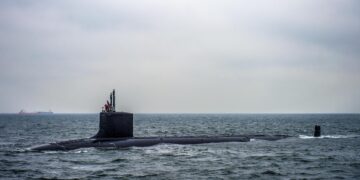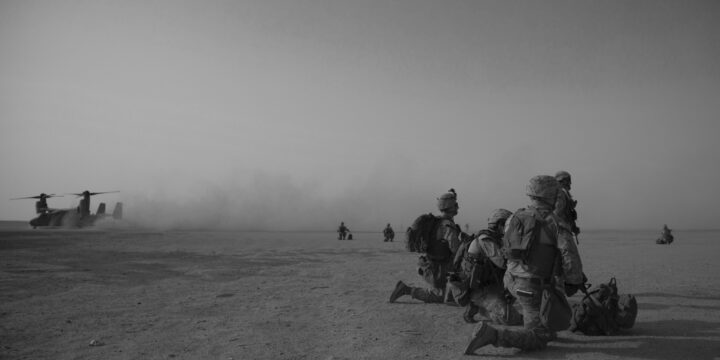Home / Afghanistan / End the war in Afghanistan and unwind post-9/11 mistakes
Afghanistan, Counterterrorism, Middle East
November 18, 2020
End the war in Afghanistan and unwind post-9/11 mistakes
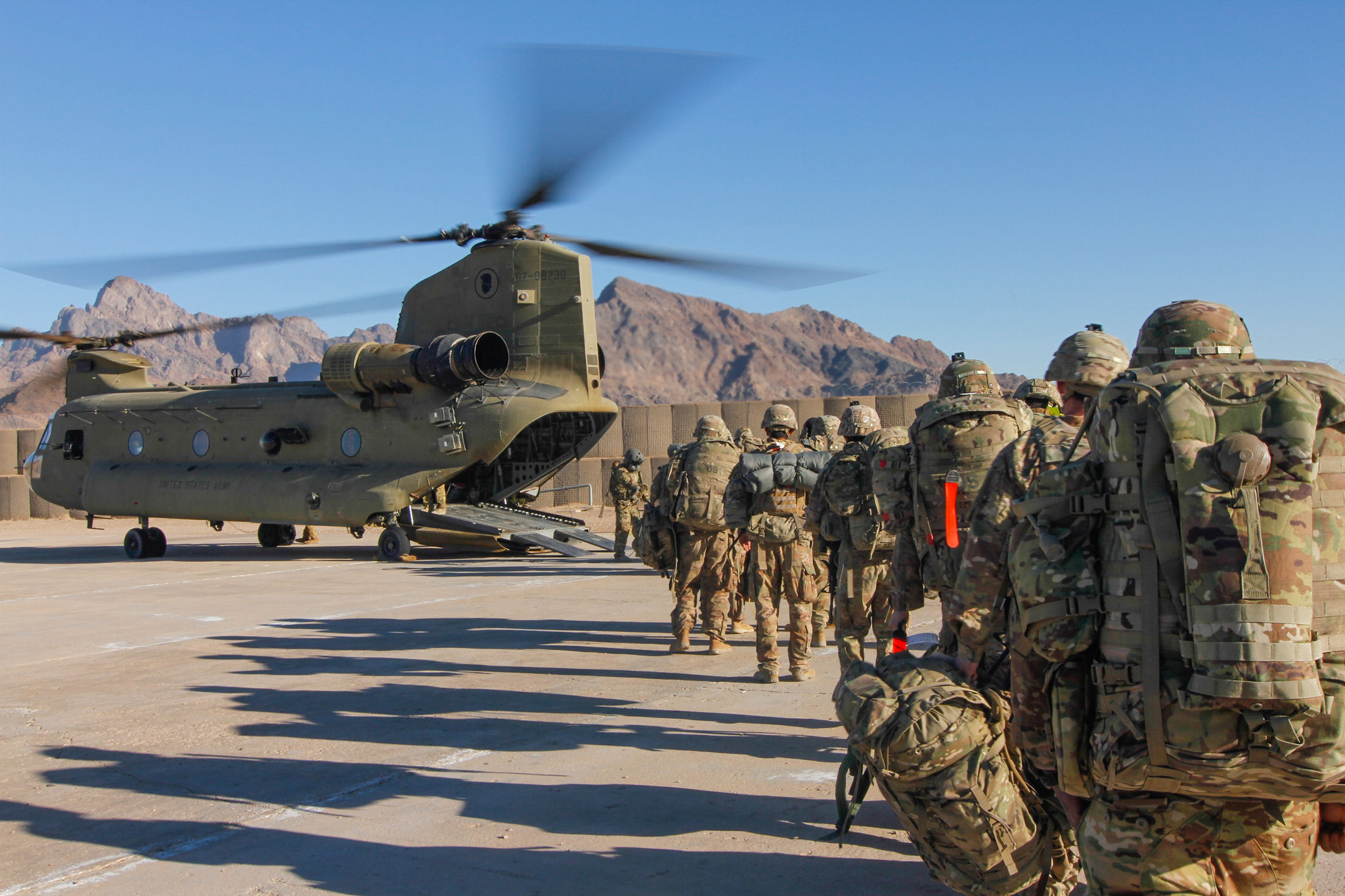
The original U.S. objectives in Afghanistan were legitimate and quickly achieved
- After the 9/11 attacks, invading Afghanistan was appropriate, and the U.S. objectives were limited: (1) decimate Al-Qaeda in Afghanistan and (2) punish the Taliban for harboring them.
- The U.S. accomplished both objectives in the war’s first months. By the winter of 2002, Al-Qaeda’s leadership was either wiped out or on the run; Osama bin Laden was hiding in Pakistan; and the Taliban were out of power.
- With U.S. goals achieved, the wisest course for the U.S. was an orderly withdrawal from Afghanistan so Afghans could take responsibility for their own affairs. Instead, the U.S. adopted a new, unattainable goal: nation building.
Nation building erodes U.S. power and makes us less safe
- The shift from counterterrorism to nation building in Afghanistan was a terrible mistake. Countering anti-U.S. terror threats never required transforming ungoverned spaces into functioning democracies. Counterterrorism and counterinsurgency are distinct.
- That mistaken logic turned a victory into failure. It also encouraged additional regime-change wars in Iraq and elsewhere that have made the U.S. less safe.
- These interventions—executed with large footprints; small footprints; airpower; “by, with, and through” partners; and other means—all failed to achieve the stated political ends. The number of transnational terrorists is greater today than on 9/11.
- Overly ambitious efforts to reform governments and their armies actually undermine effective counterterrorism, which requires focused attention and discrimination among threats.
- A clear lesson of failed interventions is to use caution before starting wars—to treat urgent demands for military power with skepticism using institutional checks.
End occupations in favor of smart counterterror policies, like targeted raids
- Occupying distant lands in service of dominating local politics is almost always a misuse of U.S. resources and lives.
- Permanent ground troops are expensive and tend to enhance resistance, particularly in a nation like Afghanistan—riven by geography, faction, decentralization, and a history of fighting outsiders.
- The 20-year war in Afghanistan has sacrificed more than 2,300 U.S. servicemembers’ lives; 20,000 more have been wounded, many with life-altering injuries. It has cost U.S. taxpayers more than a trillion dollars, not including future obligations.
- Billions in U.S. assistance have been lost to corruption. Kabul is no more likely to survive a U.S. exit in 20 years than today. No amount of U.S. investments will solve Afghanistan’s political problems.
- The U.S. military’s global surveillance and strike capabilities mean no terrorist threat is beyond our reach, even without permanent ground troops. That ability to deter and punish the Taliban for hosting terrorists provides more security than any agreement.
- Drone strikes and raids, like those that killed Osama bin Laden and ISIS founder Abu Bakr al-Baghdadi, are no panacea. But they provide at least as much security as counterinsurgency wars at a fraction of the human and financial costs.
Withdrawing U.S. forces from Afghanistan and the greater Middle East is good policy
- The ongoing military occupations of Afghanistan, Iraq, Syria, and the greater Middle East are costly mistakes that come at the expense of higher defense priorities.
- Talk of a “conditions-based” withdrawal is a stalking horse for staying indefinitely. The conditions in question are only connected to U.S. security because large numbers of military personnel are there. That is a reason to leave, not to stay.
- Washington has long used U.S. military lives and taxpayer dollars as leverage for Kabul to negotiate intra-Afghan peace with the Taliban. Those are sunk costs. A lasting peace deal remains unlikely, regardless of U.S. policy, but is the responsibility of Afghans.
- An immaculate withdrawal from Afghanistan isn’t possible. Leaving will always cause problems, but it would force others with more at stake in Afghanistan to manage them. After 20 years of occupation, it is absurd to describe U.S. exit as precipitous.
- There is nothing irresponsible about reducing troop levels to 2,500 by January 15, 2021. The only thing irresponsible would be not getting to zero by the May 2021 deadline included in the U.S.-Taliban agreement.
- No vital interests justify U.S. force deployments to Afghanistan, Iraq, Syria, or the greater Middle East. Now is the time to draw down U.S. military forces and exit the region. The U.S. is safer with forces offshore or coming home.
More on Asia
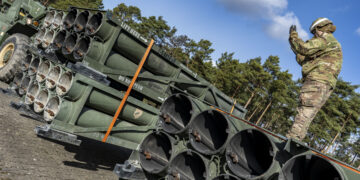
Featuring Dan Caldwell
July 13, 2025

ExplainerMilitary analysis, Air power, Basing and force posture, Land power, Naval power
By Jennifer Kavanagh and Dan Caldwell
July 9, 2025
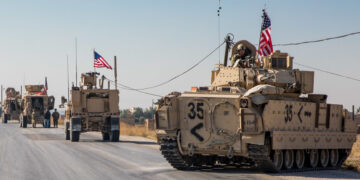
Featuring Jennifer Kavanagh and Dan Caldwell
July 9, 2025
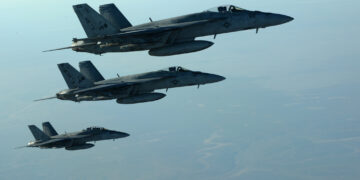
Featuring Lyle Goldstein
July 4, 2025
